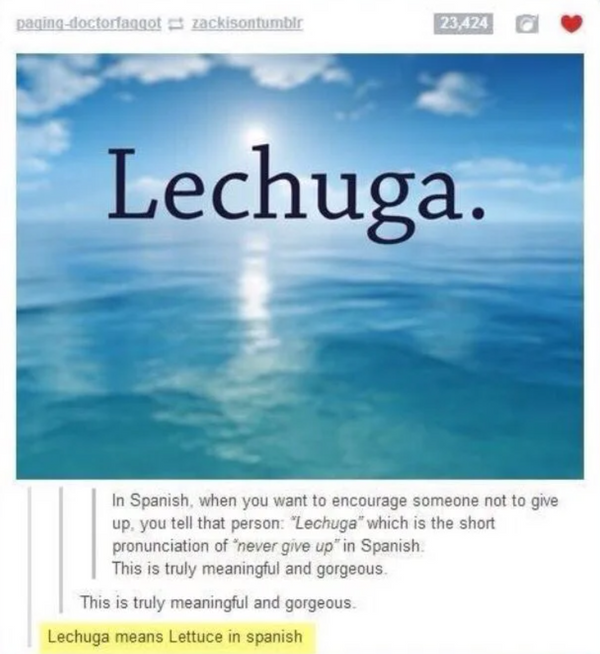

Understanding Spanish Language Misinterpretations: The Case Of "Yo Quiero Comer Culo"
Language is a beautiful but complex tool we use to express our thoughts and feelings. When learning a new language, such as Spanish, it's essential to grasp not only the vocabulary but also the cultural nuances that come with it. Misinterpretations can lead to humorous or embarrassing situations, especially when it comes to expressing love.
The phrase “Yo quiero comer culo” has been circulating on social media, misleading many into believing it means “You are the light of my life.” This misconception highlights the importance of understanding the correct translations and cultural context of phrases. As we dive deeper into this topic, we will explore the origins of this phrase and clarify the actual translations of common expressions of love in Spanish.
Since at least 2014, users on various social media platforms have shared this phrase, causing confusion among both Spanish speakers and learners. In this article, we will examine the implications of such linguistic errors and provide accurate translations to help clear the air around this phrase. So, let's get started!
Table of Contents
- Understanding the Phrase
- The Proper Translations of Love
- Misinterpretations and Their Consequences
- Conclusion and Key Takeaways
Understanding the Phrase
This phrase, which translates to “I want to eat a**,” is not only vulgar but also far removed from any romantic expression. The confusion arises from its humorous usage in memes and social media posts, which often fail to convey the true meaning behind the words. As a result, many people mistakenly believe it has a sweet connotation.
Such phrases gain traction online, often due to their catchy or outrageous nature, but they can lead to significant misunderstandings. It's crucial for language learners to verify the meanings of phrases before using them in conversation, especially in romantic contexts.
The Proper Translations of Love
In Spanish, the correct expressions for "I love you" are “te quiero” and “te amo.” Both convey affection, but they carry different weights. “Te quiero” is typically used among friends and family, while “te amo” is reserved for deep romantic love.
Additionally, the phrase “You are the light of my life” translates to “Eres la luz de mi vida,” which possesses a much more affectionate and sincere meaning than the vulgar phrase in question. Understanding these distinctions is vital not only for effective communication but also to avoid potential embarrassment.
Misinterpretations and Their Consequences
Misunderstanding language can lead to awkward situations, especially when trying to express something as meaningful as love. Non-Spanish speakers might be tempted to use phrases they heard online without knowing their true meanings.
Such errors could result in misunderstanding in romantic relationships or social interactions. The internet's role in spreading misinformation highlights the necessity for accurate knowledge when using another language. Always double-check translations and seek guidance from reliable sources!
Conclusion and Key Takeaways
In conclusion, understanding the Spanish language, especially when it comes to expressing love, requires careful attention to detail. Misinterpretations like "Yo quiero comer culo" serve as a reminder to verify phrases before using them. Language is a bridge to connect with others, and clear communication is essential for fostering relationships.
So, remember: always seek clarity when learning a new language, and ensure you understand the meanings behind the words you choose to use. This way, you can avoid embarrassing situations and communicate your feelings accurately!

(9GAG user jdthecakeman)
The Surprising Origins Of The Word "Shit": Debunking Myths And Misconceptions
The Chilling Tale Of The Russian Sleep Experiment: Fact Or Fiction?
The Mystery Of White Bic Lighters And Rock Legends: Fact Or Fiction?
